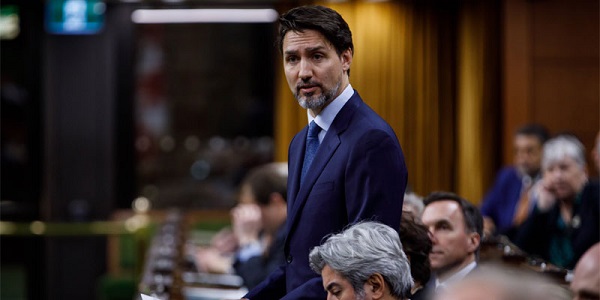Opinion
Will we spend One Hundred Million Dollars for a faster horse
Henry Ford was supposed to have stated; “ If I had asked people what they wanted, they would have said faster horses.” It is often said but never proven, but it is indicative of the situation at the time.
I think of this statement, when I am involved in a survey, a planning committee, a budget meeting or anytime at all, when I am involved with planning.
Ford built cars, precipitated somewhat, to the industrial revolution and turned transportation on it’s ear, among many other things. Studebaker took longer to decide to switch from building horse drawn covered wagons to building gas powered vehicles. Today the decision was obvious, but then it required visionaries to buck the established thought and the status quo.
Do we have any visionaries in Red Deer willing to buck the status quo? Is the decision to spend $100 million on the downtown recreation centre just the same as deciding to retarp the covered wagon. Should we build a new aquatic centre in another location, like the area north of the river by Hazlett Lake?
When the Collicutt Centre was first considered it was also a highly controversial item that garnered strong opinions from all sides. Who today, would say it was the wrong decision to go forward? Especially since it is the most widely used facility in Red Deer and helped spur growth in the south east sector of Red Deer.
That discussion was around thirty years ago. The Collicutt Ctr. Itself is closing in on 20 years of age , now. The city is almost twice the size, as when Collicutt was first discussed, but there is no discussion now, about building an aquatic centre in the north west in the thousands of acres of undeveloped land coming up for development around Hazlett lake north of 11A.
So do the citizens of Red Deer want to invest $100 million in a faster horse downtown, or should we build a gas powered tourist vehicle by Hazlett Lake visible to Hwy2 and Hwy11a, traffic? Can we discuss this? Who will buck the established thought or will we just get our faster horse?
Brownstone Institute
First Amendment Blues

From the Brownstone Institute
By
You might think these are quite rare but not a bit of it; 13,200 of these were recorded in the last 12 months, and that’s around 36 a day, and they go on your record and sometimes mean you end up with no job. They also have new laws planned to control misinformation and disinformation, something not just confined to the UK. Similar laws are planned for Ireland, Australia, Canada, and the EU.
I’m envious. The US has something the UK doesn’t have, namely a First Amendment. Yes I know there are those who wish the US didn’t have it either, including, I understand, John Kerry and that woman who still thinks she beat Trump the first time around. Kerry kind of wishes that the First Amendment wasn’t quite so obstructive to his plans. But from where I stand, you should be thankful for it.
Not only does the UK not have a First Amendment, it doesn’t have a constitution either, and that makes for worrying times right now. Free speech has little currency with Gen Z and the way it looks, even less with the new UK Labour government. Even Elon Musk, who takes a surprising interest in our little country, has recently declared the UK a police state.
It’s not surprising. Take for instance the case of Alison Pearson, who had the police knocking on her door this Remembrance Sunday. They had come to warn her they were investigating a tweet she had posted a whole year ago which someone had complained about. They were investigating whether it constituted a Non-Crime Hate Incident or NCHI. Yes, you heard me right, a ‘non-crime’ hate incident and no, this is not something out of Orwell, it’s straight out of the College of Policing’s playbook.
If you haven’t heard of them, you can thank your First Amendment. In the UK you can get a police record for something you posted on X that someone else didn’t like and you haven’t even committed a crime. NCHIs are a way they have of getting around the law in the same way John Kerry would like to get around the First Amendment, except it’s real where I live.
Alison Pearson is a reporter for the Daily Telegraph, but that doesn’t mean she can write what she likes. When she asked the police what the tweet was which was objected to, she was told they couldn’t tell her that. When she asked who the complainant was, they said they couldn’t tell her that either. They added, that she shouldn’t call them a complainant, they were officially the victim. That’s what due process is like when you don’t have a First Amendment or a constitution. Victims of NCHI in the UK are decided without a trial or a defense. They asked, very politely, if Pearson would like to come voluntarily to the police station for a friendly interview. If she didn’t want to come voluntarily, they would put her on a wanted list and she would eventually be arrested. Nice choice.
It’s true that there has been a public ruckus over this particular case, but the police are unapologetic and have doubled down. Stung into action by unwanted publicity, they are now saying they have raised the matter from an NCHI to an actual crime investigation. Which means they think she can be arrested and put in prison for expressing her opinion on X. And of course they are right. In the UK that’s where we are right now. Pearson tried to point out the irony of two police officers turning up on her door to complain about her free speech on Remembrance Day of all days, when we recall the thousands who died to keep this a free country, but irony is lost on those who have no memory of what totalitarianism means.
The way things are looking I would say things can only get worse. The new Labour government has made it clear that it wants to beef up the reporting of NCHIs and make them an effective tool for clamping down on hurtful speech. You might think these are quite rare but not a bit of it; 13,200 of these were recorded in the last 12 months, and that’s around 36 a day, and they go on your record and sometimes mean you end up with no job. They also have new laws planned to control misinformation and disinformation, something not just confined to the UK. Similar laws are planned for Ireland, Australia, Canada, and the EU. Germany in particular is keen to remove all misinformation from the internet, I understand.
Whenever I see the word ‘misinformation’ these days I automatically translate it in my head to what it really means, which is ‘dissent.’ Western countries, former champions of free speech, the bedrock of liberty and individual choice, en masse it seems, now want to outlaw dissent. What is coordinating this attack on free expression, I don’t know, but it’s real and it’s upon us. We are slowly being intellectually suffocated into not expressing any opinion that others might find objectionable or that might contradict what the government said. If you had told me that would happen in my lifetime, I would have called you a liar.
I live in the UK, the home of the Bill of Rights and the Magna Carta, and the mother of parliamentary democracy. I was proud that we produced men like John Milton, John Stuart Mill, and Thomas Paine, that we understood the importance of the Areopagitica, the Rights of Man, and incorporated On Liberty into our social thinking. But those days seem long gone when police knock on your door to arrest you for an X post.
So I’m glad someone somewhere has a First Amendment even if we don’t. It may be your last defense in that republic of yours, if you can keep it.
Business
Trudeau’s new tax package gets almost everything wrong

From the Fraser Institute
Recently, Prime Minister Justin Trudeau announced several short-term initiatives related to tax policy. Most notably, the package includes a two-month GST holiday on certain items and a one-time $250 cheque that will be sent to all Canadians with incomes under $150,000.
Unfortunately, the Trudeau government’s package is a grab bag of bad ideas that will not do anything to get Canada out of the long-term growth rut in which our economy is mired. There are too many to list all in one place, but here are four of the biggest problems with Prime Minister Trudeau’s tax plan.
- It reduces the wrong taxes. When it comes to economic growth, not all taxes are created equal. Some cause far more economic harm per dollar of government revenue raised than others. The government’s package creates a holiday on the GST for some items (only for two months) which is a mistake given that the GST is one of the least economically harmful components of the tax mix. Canada’s recent growth record is abysmal, and boosting growth should be a primary goal of any changes to tax policy. A GST cut of any duration fails this test relative to other tax cuts.
- Temporary tax holidays shift consumption in time, they don’t boost growth. The government’s GST reduction is actually a short-term tax holiday on certain items that will last two months. There are decades worth of economic research showing that when governments create short-term tax breaks, they may change the timing of consumption, but they won’t contribute to actual economic growth. Shifting consumption from the future to the present won’t help get Canada out of the economic doldrums. This is particularly true of the Trudeau tax holiday since purchases that Canadians may have made after the two-month holiday period will simply be shifted forward to take advantage of the absence of the GST. As noted above, there are better taxes to cut than the GST, but no matter what taxes we are talking about permanent reductions are vastly superior to temporary tax cuts like short-term holidays.
- One-time tax rebates don’t improve economic incentives. Perhaps the worst element of the Trudeau government’s announcement was a plan to send $250 cheques to all Canadians earning under $150,000. One-time tax rebates are a terrible way to provide tax relief. When you cut income tax rates, you improve incentives for people to work and invest because they get to keep a larger share of their earnings. This helps the economy grow. One-time rebates that you get regardless of the economic choices you make has no similar effect. This means that the rebate with its $4.7 billion price tag won’t help Canada’s poor growth performance.
- It borrows from the future to give to the present. The federal government is currently running a large deficit. This raises the question of who will have to pay the $4.7 billion bill for the one-time payments announced today. The answer is that the government will have to borrow the money and therefore future taxpayers will have to either pay it off or service the extra debt indefinitely. The money the Trudeau government will send out won’t come out of thin air, it’ll have to be borrowed with the burden falling on future taxpayers.
The Trudeau government got one thing conceptually right, which is that there are advantages to reducing the tax burden on Canadians. Unfortunately, the policy package it has put forward to provide tax relief gets everything wrong. It reduces the wrong taxes, shifts taxes temporally rather than cutting them, does nothing to improve economic incentives, and burdens future taxpayers. With the holiday season around the corner, this attempt at a gift to Canadian taxpayers is the economic equivalent of a lump of coal in the stocking.
Authors:
-

 Addictions2 days ago
Addictions2 days agoBC Addictions Expert Questions Ties Between Safer Supply Advocates and For-Profit Companies
-

 Aristotle Foundation2 days ago
Aristotle Foundation2 days agoToronto cancels history, again: The irony and injustice of renaming Yonge-Dundas Square to Sankofa Square
-

 conflict2 days ago
conflict2 days agoUS and UK authorize missile strikes into Russia, but are we really in danger of World War III?
-

 Business1 day ago
Business1 day agoCBC’s business model is trapped in a very dark place
-

 armed forces1 day ago
armed forces1 day agoJudge dismisses Canadian military personnel’s lawsuit against COVID shot mandate
-

 International1 day ago
International1 day agoElon Musk, Vivek Ramaswamy Outline Sweeping Plan to Cut Federal Regulations And Staffing
-

 conflict2 days ago
conflict2 days agoPutin Launches Mass-Production of Nuclear Shelters for his People
-

 Energy1 day ago
Energy1 day agoWhat does a Trump presidency means for Canadian energy?








